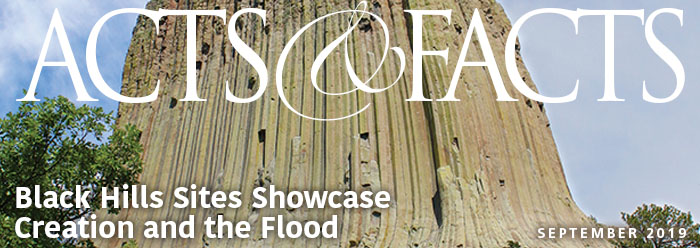Search Tools
New Defender's Study Bible Notes
33:1 blessed the children of Israel. When Jacob gave his prophecies relative to his twelve sons (Genesis 49:1-28), he was thinking especially of the personal character of each of the twelve, with the ways that character would manifest itself in the character of the tribe that would descend from him. Moses, however did not know the twelve patriarchs personally, but had become very familiar with the characteristics of their respective tribes. His prophetic blessings, therefore, deal more with the respective tribes as Moses had come to know them.
33:2 ten thousands of saints. Evidently there were myriads of holy ones with God on Mount Sinai as His right hand wrote the commandments for Israel on tables of stone. Note also references to angels at the giving of the law in Acts 7:53; Galatians 3:19; and Hebrews 2:2.
33:2 went a fiery law. The “saints” (that is “holy ones” ) with God at Mount Sinai were holy angels, all intensely interested in the developing plan of God, especially at this critical point in redemptive history. Note I Peter 1:12; Exodus 19:19; Psalm 68:17).
33:8 of Levi he said. Moses and Aaron had been of the tribe of Levi, so it is not surprising that his prayer for that tribe would be longer (Deuteronomy 33:8-11) than for any other except Joseph, (representing the two tribes of Ephraim and Manasseh (Deuteronomy 33:13-17). On the Urim and Thummim, see the footnote on Exodus 28:30.
33:17 ten thousands of Ephraim. Moses’ prophetic prayer for Ephraim and Manasseh, the tribes descended from Joseph, was longer and more positive than for any other tribe. Joshua was from Ephraim (I Chronicles 7:20-27), and Ephraim eventually would become the most prominent tribe of the northern ten-tribe kingdom.
33:26 the God of Jeshurun. Deuteronomy 33:26-29 has all Israel in view again, rather than individual tribes. The beautiful themes of God as our refuge, cradling us in His “everlasting arms” has been a comfort and delight to God’s people all through the ages.
34:5 died there. Although Moses wrote the book of Deuteronomy as a whole, it is probable that Joshua wrote its closing verses found in Deuteronomy 34:5-12. It is possible, of course, that Moses himself wrote his own epitaph, by divine inspiration, but since no one knew his burial place (Deuteronomy 34:6), it would hardly be likely that he directly gave such a record to Joshua before he died. In some way Satan was also present at the scene (along with the archangel Michael–Jude 9), seeking to claim Moses’ body for some unrevealed but certainly nefarious purpose.
34:7 hundred and twenty years old. Moses had written that man’s normal life span by his day had decreased to 70 or 80 years (Psalm 90:10), yet God allowed him 120 years. At his death he was at least 60 years older than any man in Israel was (Numbers 14:29), except for Caleb and Joshua. Joshua died at age 110 (Joshua 24:29); Caleb outlived him but his age at death is not recorded.









